I used to wonder how a manufacturing plant named Devil-Dog ever made it into Southern Baptist territory. I have friends that won’t even eat a deviled egg or bake a devil’s food cake. Then I discovered that the term “devil-dog” is actually an affectionate name for the Marines, celebrating their toughness.
Recently on our trip across North Carolina we passed by the Devil-Dog plant on Gannon Avenue in Zebulon. It is not far from the cemetery where a number of my family members are buried.
Devil-Dog has a place in my family history as my grandmother, who was an excellent seamstress, worked, alongside many of her friends and neighbors, at the Devil-Dog plant when it came to the area in 1954.
My sister remembers her doing piece-work and being paid by the number of pieces she completed. I just remember that she really liked working there and was thrilled to have a job that paid her to do something she really liked and was very good at doing. She also got to buy things at the plant’s outlet store and I remember sporting some Devil-Dog Dungarees as a child.
That’s right. We didn’t call them “blue jeans” but we called them dungarees. The word dungaree comes from a Hindi word dungri referring to a rough type of cloth. It later came to refer to a type of trousers made from coarse cloth which was usually blue.
We don’t tend to think that working in a sewing factory would be a great job but I remember that my grandmother enjoyed working there as did many of her friends. Textile plants brought a lot of jobs to rural areas and North Carolina was no exception.
The Devil-Dog Dungarees factory opened in Zebuon around 1954. The family-owned business had started in New York, and moved to NC to open sewing factories in Zebulon and other Southern towns. Changes in the textile industry at that time prompted many companies to move to the state and business was booming.
Devil-Dog Dungarees — now Devil-Dog Manufacturing Co. — has operated continuously in Zebulon since 1954, registering with the state in 1952.
In the late 1990s, changes to the textile and apparel industry came again. Jobs sewing apparel began moving to other parts of the world. It is rather amazing that Devil-Dog rode through all those industry changes and still continues today.
Tony Shannahan, who has been with the company for over 32-years, says “We are quite proud of the fact we’re still here. A lot of companies did not survive that period of time.”
Dungarees are no longer manufactured at this Zebulon Devil-Dog plant; it is used as a distribution center for clothes they make in other locations. The Gannon Avenue location employs approximately 95 people today.
In its prime as a sewing factory, Devil-Dog employed over 1200 people. My grandmother was one of those people.
Like Tony Shannahan, I felt proud as we passed the plant on Gannon Avenue. There is something comforting about places from our childhood that are still there. Something nice about knowing that the Devil-Dog brand still bears the place name Zebulon on its label.




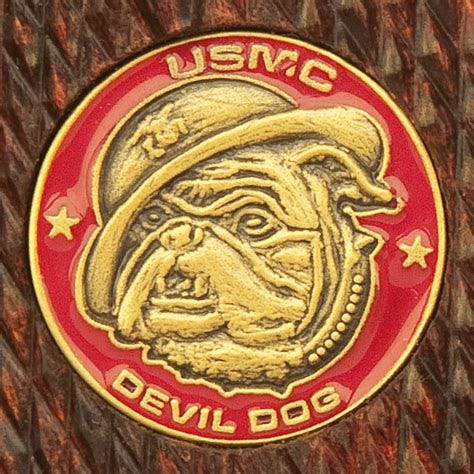
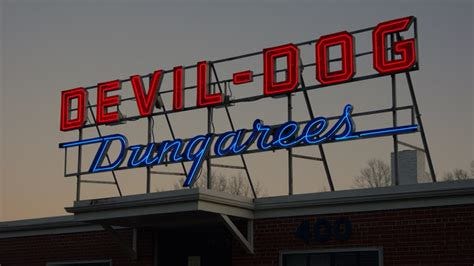
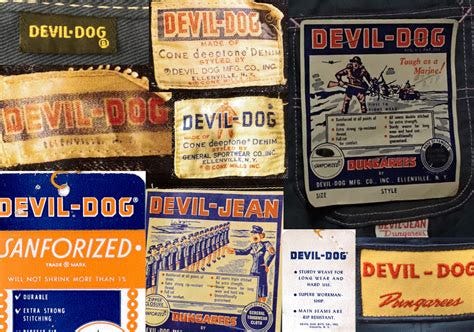
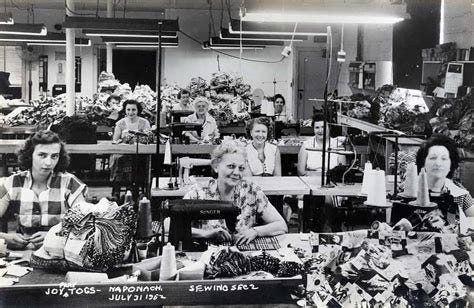
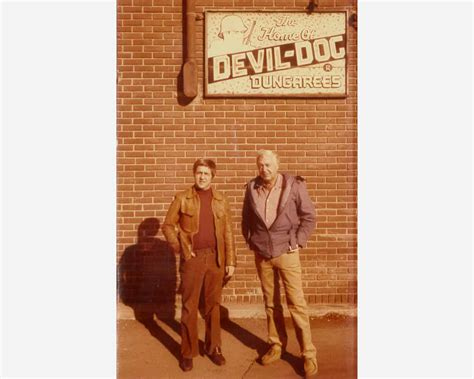
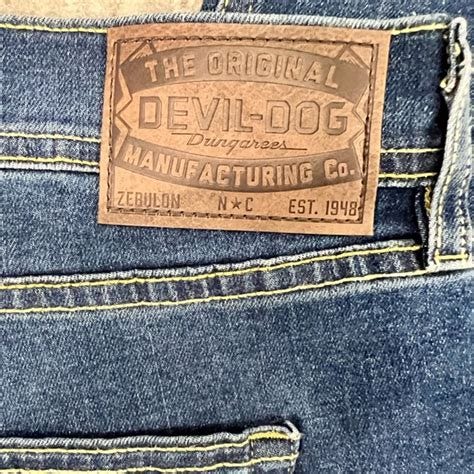
Those folks who refused to eat deviled eggs or devils food cake missed out on good food. One of the last manufacturing plants in WNC I knew as American Enka is being razed. Generations of Americans worked those jobs.
Never heard of this brand. How did Levi’s become the word? Where are the other plant locations? Someone should interview the owner to get a drift of how things are going.